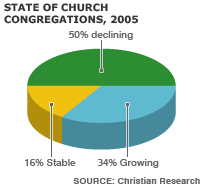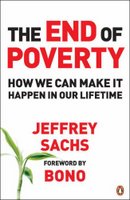 Foreign Affairs, Setpember/October 2006
Foreign Affairs, Setpember/October 2006Summary: Religion has always been a major force in U.S. politics, but the recent surge in the number and the power of evangelicals is recasting the country's political scene -- with dramatic implications for foreign policy. This should not be cause for panic: evangelicals are passionately devoted to justice and improving the world, and eager to reach out across sectarian lines.
By: Walter Russell Mead is Henry A. Kissinger Senior Fellow for U.S. Foreign Policy at the Council on Foreign Relations.
Full EssayReading ListEVANGELICALS AND FOREIGN POLICY
Religion has always been a major force in U.S. politics, policy, identity, and culture. Religion shapes the nation's character, helps form Americans' ideas about the world, and influences the ways Americans respond to events beyond their borders. Religion explains both Americans' sense of themselves as a chosen people and their belief that they have a duty to spread their values throughout the world. Of course, not all Americans believe such things -- and those who do often bitterly disagree over exactly what they mean. But enough believe them that the ideas exercise profound influence over the country's behavior abroad and at home.
The more conservative strains within American Protestantism have gained adherents, and the liberal Protestantism that dominated the country during the middle years of the twentieth century has weakened. This shift has already changed U.S. foreign policy in profound ways.
These changes have yet to be widely understood, however, in part because most students of foreign policy in the United States and abroad are relatively unfamiliar with conservative U.S. Protestantism. That the views of the evangelical Reverend Billy Graham lead to quite different approaches to foreign relations than, say, those popular at the fundamentalist Bob Jones University is not generally appreciated. But subtle theological and cultural differences can and do have important political consequences. Interpreting the impact of religious changes in the United States on U.S. foreign policy therefore requires a closer look into the big revival tent of American Protestantism.
Why focus exclusively on Protestantism? The answer is, in part, that Protestantism has shaped much of the country's identity and remains today the majority faith in the United States (although only just). Moreover, the changes in Catholicism (the second-largest faith and the largest single religious denomination in the country) present a more mixed picture with fewer foreign policy implications. And finally, the remaining religious groups in the United States are significantly less influential when it comes to the country's politics...
EVANGELICALS AND THE MIDDLE PATH
Evangelicals, the third of the leading strands in American Protestantism, straddle the divide between fundamentalists and liberals. Their core beliefs share common roots with fundamentalism, but their ideas about the world have been heavily influenced by the optimism endemic to U.S. society. Although there is considerable theological diversity within this group, in general it is informed by the "soft Calvinism" of the sixteenth-century Dutch theologian Jacobus Arminius, the thinking of English evangelists such as John Wesley (who carried on the tradition of German Pietism), and, in the United States, the experience of the eighteenth-century Great Awakening and subsequent religious revivals.
The leading evangelical denomination in the United States is the Southern Baptist Convention, which, with more than 16.3 million members, is the largest Protestant denomination in the country. The next-largest evangelical denominations are the African American churches, including the National Baptist Convention, U.S.A., and the National Baptist Convention of America (each of which reports having about 5 million members). The predominately African American Church of God in Christ, with 5.5 million members, is the largest Pentecostal denomination in the country, and the rapidly growing Assemblies of God, which has 2.7 million members, is the largest Pentecostal denomination that is not predominately black. The Lutheran ChurchMissouri Synod, which has 2.5 million members, is the second-largest predominately white evangelical denomination. Like fundamentalists, white evangelicals are often found in independent congregations and small denominations. So-called parachurch organizations, such as the Campus Crusade for Christ, the Promise Keepers, and the Wycliffe Bible Translators, often replace or supplement traditional denominational structures among evangelicals.
Evangelicals resemble fundamentalists in several respects. Like fundamentalists, evangelicals attach a great deal of importance to the doctrinal tenets of Christianity, not just to its ethical teachings. For evangelicals and fundamentalists, liberals' emphasis on ethics translates into a belief that good works and the fulfillment of moral law are the road to God -- a betrayal of Christ's message, in their view. Because of original sin, they argue, humanity is utterly incapable of fulfilling any moral law whatever. The fundamental message of Christianity is that human efforts to please God by observing high ethical standards must fail; only Christ's crucifixion and resurrection can redeem man. Admitting one's sinful nature and accepting Christ's sacrifice are what both evangelicals and fundamentalists mean by being "born again." When liberal Christians put ethics at the heart of their theology, fundamentalists and evangelicals question whether these liberals know what Christianity really means.
Evangelicals also attach great importance to the difference between those who are "saved" and those who are not. Like fundamentalists, they believe that human beings who die without accepting Christ are doomed to everlasting separation from God. They also agree with fundamentalists that "natural" people -- those who have not been "saved" -- are unable to do any good works on their own.
Finally, most (although not all) evangelicals share the fundamentalist approach to the end of the world. Virtually all evangelicals believe that the biblical prophecies will be fulfilled, and a majority agree with fundamentalists on the position known as premillennialism: the belief that Christ's return will precede the establishment of the prophesied thousand-year reign of peace. Ultimately, all human efforts to build a peaceful world will fail...
OUT IN THE WORLD
The growing influence of evangelicals has affected U.S. foreign policy in several ways; two issues in particular illustrate the resultant changes. On the question of humanitarian and human rights policies, evangelical leadership is altering priorities and methods while increasing overall support for both foreign aid and the defense of human rights. And on the question of Israel, rising evangelical power has deepened U.S. support for the Jewish state, even as the liberal Christian establishment has distanced itself from Jerusalem.
In these cases as in others, evangelical political power today is not leading the United States in a completely new direction. We have seen at least parts of this film before: evangelicals were the dominant force in U.S. culture during much of the nineteenth century and the early years of the twentieth. But the country's change in orientation in recent years has nonetheless been pronounced.
Evangelicals in the Anglo-American world have long supported humanitarian and human rights policies on a global basis. The British antislavery movement, for example, was led by an evangelical, William Wilberforce. Evangelicals were consistent supporters of nineteenth-century national liberation movements -- often Christian minorities seeking to break from Ottoman rule. And evangelicals led a number of reform campaigns, often with feminist overtones: against suttee (the immolation of widows) in India, against foot binding in China, in support of female education throughout the developing world, and against human sexual trafficking (the "white slave trade") everywhere. Evangelicals have also long been concerned with issues relating to Africa.
As evangelicals have recently returned to a position of power in U.S. politics, they have supported similar causes and given new energy and support to U.S. humanitarian efforts. Under President Bush, with the strong support of Michael Gerson (an evangelical who was Bush's senior policy adviser and speechwriter), U.S. aid to Africa has risen by 67 percent, including $15 billion in new spending for programs to combat HIV and AIDS. African politicians, such as Nigeria's Olusegun Obasanjo and Uganda's Yoweri Museveni, have stressed their own evangelical credentials to build support in Washington, much as China's Sun Yat-sen and Madame Chiang Kai-shek once did. Thanks to evangelical pressure, efforts to suppress human trafficking and the sexual enslavement of women and children have become a much higher priority in U.S. policy, and the country has led the fight to end Sudan's wars. Rick Warren, pastor of an evangelical megachurch in Southern California and the author of The Purpose Driven Life (the single best-selling volume in the history of U.S. publishing), has mobilized his 22,000 congregants to help combat AIDS worldwide (by hosting a conference on the subject and training volunteers) and to form relationships with churches in Rwanda.
Evangelicals have not, however, simply followed the human rights and humanitarian agendas crafted by liberal and secular leaders. They have made religious freedom -- including the freedom to proselytize and to convert -- a central focus of their efforts. Thanks largely to evangelical support (although some Catholics and Jews also played a role), Congress passed the International Religious Freedom Act in 1998, establishing an Office of International Religious Freedom in a somewhat skeptical State Department.
Despite these government initiatives, evangelicals, for cultural as well as theological reasons, are often suspicious of state-to-state aid and multilateral institutions. They prefer grass-roots and faith-based organizations. Generally speaking, evangelicals are quick to support efforts to address specific problems, but they are skeptical about grand designs and large-scale development efforts. Evangelicals will often react strongly to particular instances of human suffering or injustice, but they are more interested in problem solving than in institution building. (Liberal Christians often bewail this trait as evidence of the anti-intellectualism of evangelical culture.)
THE NEW GREAT AWAKENING
Evangelicals are likely to focus more on U.S. exceptionalism than liberals would like, and they are likely to care more about the morality of U.S. foreign policy than most realists prefer. But evangelical power is here to stay for the foreseeable future, and those concerned about U.S. foreign policy would do well to reach out. As more evangelical leaders acquire firsthand experience in foreign policy, they are likely to provide something now sadly lacking in the world of U.S. foreign policy: a trusted group of experts, well versed in the nuances and dilemmas of the international situation, who are able to persuade large numbers of Americans to support the complex and counterintuitive policies that are sometimes necessary in this wicked and frustrating -- or, dare one say it, fallen -- world.











